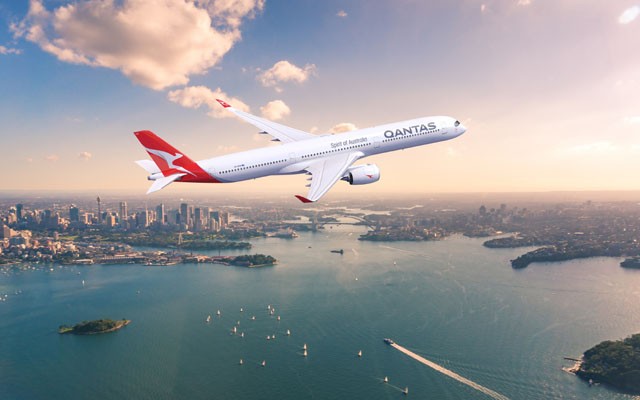The Qantas Group has posted its first full year statutory profit since FY19 and will share the benefits by rewarding employees, reinvesting for customers and returning capital to shareholders.
For FY23, the group scored an Underlying Profit Before Tax of A$2.47 billion (US$1.6 billion) and a Statutory After Tax Profit of A$1.74 billion. This compares with A$7 billion in accumulated statutory losses over three prior years.

Underpinning the profit was completion of the group’s A$1 billion recovery programme (launched in the first year of those losses), a 132 per cent increase in flying compared with FY22 and strong travel demand driving significantly higher revenue.
Operational performance improved considerably during the year with Jetstar returning to pre-Covid levels, and gradual improvement of customer satisfaction. Normalising of international capacity and the unwinding of inefficiencies from the return to flying will help put downward pressure on fares and strengthen financial performance.
Qantas Group CEO Alan Joyce said: “These results show a substantial turnaround in both our finances and service over the past year. Flight delays and cancellations have largely returned to pre-Covid levels and we’ve shifted from heavy losses to a strong profit and pipeline of investment worth billions of dollars.
“Travel demand is incredibly robust and we’ve taken delivery of more aircraft and opened up new routes to help meet it.
Group Domestic (Qantas, QantasLink and Jetstar) increased flying to 103 per cent of pre-pandemic levels by the end of the second half of FY23, supported by strong travel demand from leisure and business travel, helping to deliver Underlying EBIT of A$1.5 billion.
The return to service of seven refurbished Airbus A380s during the year, plus delivery of two new Boeing 787s and eight new A321LRs, helped Group International (Qantas and Jetstar) increase flying from 54 per cent of pre-Covid levels to 81 per cent over the period.
This activity combined with strong demand, particularly in premium cabins, helped drive Underlying EBIT of A$1.1 billion, where passenger loads averaged above 85 per cent for both Qantas and Jetstar.
Qantas Loyalty achieved significant growth across several parts of its portfolio, driving record Underlying EBIT of A$451 million. Frequent Flyer membership increased by around one million to 15.2 million and there was 19 per cent growth in the Qantas Business Rewards programme, which now counts one-in-five of all Australian small-to-medium enterprises as points-earning members.
In addition, the number of Qantas Points redeemed by members increased to 126 per cent of pre-Covid levels, and a record number of points were earned across financial products as credit card acquisitions and spending continued to grow.
The group has announced a firm order for 24 widebody aircraft, consisting of 12 Boeing 787s and 12 Airbus A350s. These aircraft will replace the bulk of the current A330 fleet, and, ultimately, the A380 fleet as well.
As part of this new order, Qantas will partner with Airbus and Boeing to access up to 500 million litres of Sustainable Aviation Fuel (SAF) per annum from 2028, including from the US.
Fares peaked in the second quarter of FY23, while additional capacity, moderating fuel costs and a stronger Australian dollar applied downward pressure in the second half, with fares falling by around 12 per cent. In inflation adjusted terms, domestic fares are now four per cent higher than pre-Covid levels and international fares are 10 per cent higher.
To recognise the huge part that Qantas Group employees have played in the return to profit, around A$340 million has been set aside in bonuses for more than 21,000 people, including pilots, cabin crew, engineers and head office staff.
These bonuses include up to 1,000 Qantas shares (valued at around A$6,000) that will now vest and a A$5,000 ‘recovery boost’ that eligible employees are receiving as enterprise agreements are finalised. All non-executive employees have also been awarded another A$500 staff travel credit in addition to A$500 given earlier this calendar year, valued at A$20 million in total.
Additionally, funds set aside provide for recovery and retention and bonus schemes for managers and executives not covered by enterprise agreements – improvements to staff travel benefits in the past year have seen thousands of employees and their family members access heavily discounted domestic and international air fares.
Entering FY24 with a very strong balance sheet, Qantas Group has A$1 billion in reoccurring cost benefits from its recovery programme, and strong trading conditions as consumers continue to prioritise travel.




















